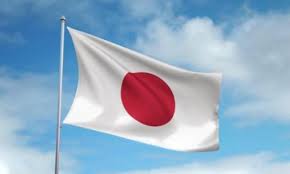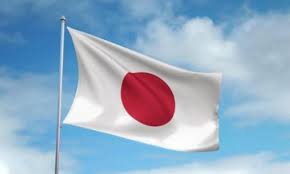
Profits for Japan’s three big banks would be reduced by at least 300 billion yen ($2.96 billion) for the year through March 2017 due to the negative interest rates under the Bank of Japan's monetary easing policy, estimates Japan's financial watchdog. This was reported by the Nikkei business daily on Saturday. The report said these were figures as estimated by the country’s government.
The potential impact of negative interest rates on the retail transactions as sales of asset management products, interest income and derivatives trading at the three leading mega banks of the country were studied at depth in a survey that was recently conducted by the Financial Services Agency with these three areas as its focus.
The result of the survey and study indicated that Mizuho Financial Group's profit will retreat by 61 billion yen, Sumitomo Mitsui Financial Group will lose between 75 billion yen and 76 billion yen in black ink and Mitsubishi UFJ Financial Group's profit will fall by 155 billion yen. The report also pointed out that the primary reason for this was he narrower interest rate spread.
The banks will lose lending leeway, the financial watchdog expressed concerns to the BOJ based on its findings. As part of a comprehensive assessment of the minus-rate policy when they meet next month, BOJ board members will likely discuss the results.
Additional declines in interest income of 48 billion yen, 41 billion yen and 60 billion yen, respectively would be suffered by them, the banks said if the BOJ decides to take rates further into negative territory.
The watchdog is adopting a guarded stance toward any ratcheting up of the policy in light of the findings, which were worse than expected, even as the FSA had urged cooperation from the financial sector on negative rates.
The hit to the capital base that a bank incurs when it expands services such as loans in order to boost earnings has to be compensated for. However any further public stock offerings would likely face resistance from investors as the three megabanks have engaged in massive fundraising efforts since the global financial crisis.
The list of eligible borrowers might shrink if the megabanks continue to shrink their holdings of risk assets in order to shore up their capital bases.
The financial institutions' health was also examined by the FSA survey. At one bank, the banking unit for home loans has fallen into the red as the profitability of the unit has crumbled for home loans with 0.625% annual interest rates.
Additionally, since insurance companies providers engage in long-term fund management, the ways and means that the negative-rate policy will impact earnings in the short term for them is difficult to judge. However there is at least one insurer that saw its capital ratio fall by half over a year calculated on the basis of the fluctuating market values of long-term Japanese government bonds and similar vehicles.
(Source:www.asia.nikkei.com)
The potential impact of negative interest rates on the retail transactions as sales of asset management products, interest income and derivatives trading at the three leading mega banks of the country were studied at depth in a survey that was recently conducted by the Financial Services Agency with these three areas as its focus.
The result of the survey and study indicated that Mizuho Financial Group's profit will retreat by 61 billion yen, Sumitomo Mitsui Financial Group will lose between 75 billion yen and 76 billion yen in black ink and Mitsubishi UFJ Financial Group's profit will fall by 155 billion yen. The report also pointed out that the primary reason for this was he narrower interest rate spread.
The banks will lose lending leeway, the financial watchdog expressed concerns to the BOJ based on its findings. As part of a comprehensive assessment of the minus-rate policy when they meet next month, BOJ board members will likely discuss the results.
Additional declines in interest income of 48 billion yen, 41 billion yen and 60 billion yen, respectively would be suffered by them, the banks said if the BOJ decides to take rates further into negative territory.
The watchdog is adopting a guarded stance toward any ratcheting up of the policy in light of the findings, which were worse than expected, even as the FSA had urged cooperation from the financial sector on negative rates.
The hit to the capital base that a bank incurs when it expands services such as loans in order to boost earnings has to be compensated for. However any further public stock offerings would likely face resistance from investors as the three megabanks have engaged in massive fundraising efforts since the global financial crisis.
The list of eligible borrowers might shrink if the megabanks continue to shrink their holdings of risk assets in order to shore up their capital bases.
The financial institutions' health was also examined by the FSA survey. At one bank, the banking unit for home loans has fallen into the red as the profitability of the unit has crumbled for home loans with 0.625% annual interest rates.
Additionally, since insurance companies providers engage in long-term fund management, the ways and means that the negative-rate policy will impact earnings in the short term for them is difficult to judge. However there is at least one insurer that saw its capital ratio fall by half over a year calculated on the basis of the fluctuating market values of long-term Japanese government bonds and similar vehicles.
(Source:www.asia.nikkei.com)














